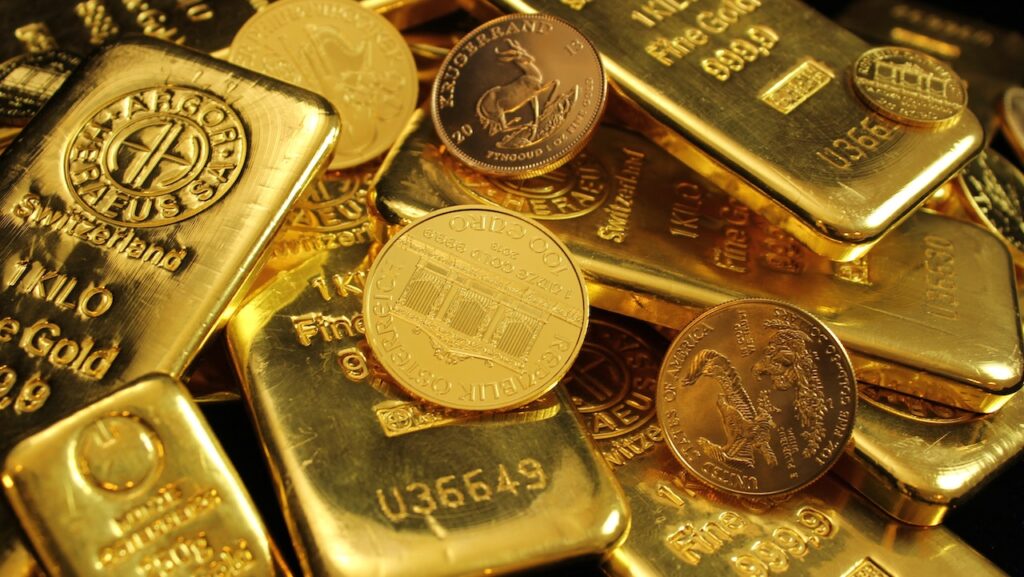by Peter Schiff, Schiff Gold:

At its recent summit, the BRICS economic bloc announced it will add six new members, including Saudi Arabia. Many people believe the growing influence of BRICS could ultimately dent Western economic power and undermine the dollar’s role as the world’s reserve currency.
Many people frame the rise of BRICS as a battle between East and West, but economist Patrick Barron said it’s more fundamental than that. It’s actually a war between diametrically opposed economic ideas.
TRUTH LIVES on at https://sgtreport.tv/
Barron argues that the real conflict is between Keynesian economic theory and gold.
And he says gold will win.
![]()
The following was originally published at the Mises Wire. The opinions expressed are the author’s and do not necessarily reflect those of Peter Schiff or Schiff Gold.Leaders of the Western democracies are unprepared to deal with the forces that will end the fiat dollar’s dominance as the preferred medium of international trade settlement, in place since the end of the Bretton Woods Agreement in 1971.
The recent BRICS summit was expected to include an agreement on a first step toward establishing an alternative international trade settlement system based on commodities, which would certainly include gold. Dozens of non-Western and even some Western-affiliated nations are attending and watching with great interest. Six new members have been invited to join Brazil, Russia, India, China, and South Africa—Argentina, Egypt, Ethiopia, Iran, Saudi Arabia, and the United Arab Emirates.
Although the coming change may be characterized as one between the Western democracies and the BRICS nations, the real battle is one of ideas—between Keynesian economic theory and gold. The winner will be gold.
As Murray N. Rothbard explained in What Has Government Done to Our Money? gold was never proven to be inferior to fiat money. The gold standard was not replaced by a better monetary system. It was suppressed in stages to satisfy the state’s insatiable need for money—first to make war and then to corrupt the people via welfare. The result, of course, has been never-ending wars, a creeping expansion of the welfare state, unsustainable public deficits, and the accelerating debasement of the currency.
The challenge to the fiat dollar began with its debasement, which has lowered its purchasing power to gold by 98 percent since 1971, and this challenge accelerated with the introduction of the so-called Russian sanctions—freezing Russian-owned assets in the West and denying Russia access to the international dollar trade settlement messaging system known as SWIFT. Russian monetary expert Sergey Glazyev has led the movement toward an alternative system.
Putting “Paid” to Keynesian Fallacies
Introducing gold into the trading system will expose the main fallacy of Keynesian economics: the elevation of aggregate demand to prominence in a nation’s economy rather than production—the only means of satisfying the demand in the first place. Jean-Baptiste Say showed that production is required in order to enjoy the benefits of consumption. Instead, Keynes shunned Say’s law in his General Theory of Employment, Interest and Money in order to hide his theory’s internal contradictions. Keynes elevated the concept of “aggregate demand” overproduction, while Jean-Baptiste Say shows that production is required in order to enjoy the benefits of consumption.
On the face of it, it is hard to believe that anyone would believe that production either isn’t required for consumption or that it magically appears. Yet, this rather upside-down theory appealed to politicians for obvious reasons—it gave them carte blanche to spend, all with money created out of thin air by the central bank. Rather than economize and prioritize spending that was absolutely necessary for the benefit of the entire nation, politicians were told by Keynes that it was their duty to spend, even if it was only to pay people to dig holes and others to fill those holes back up.




